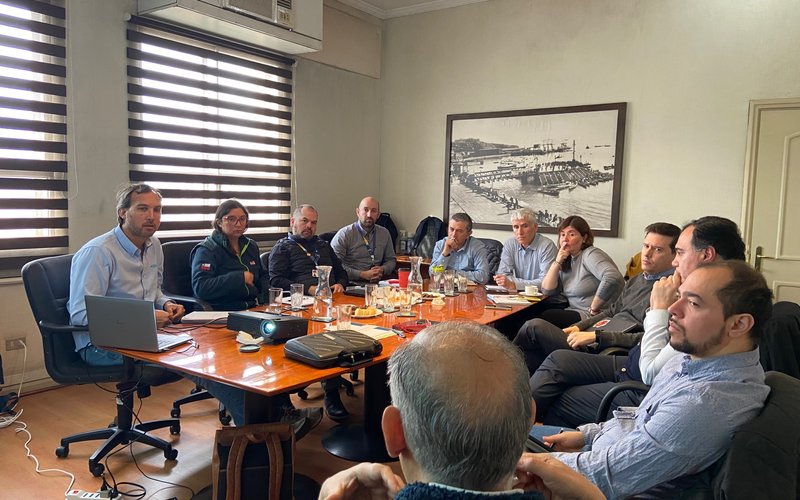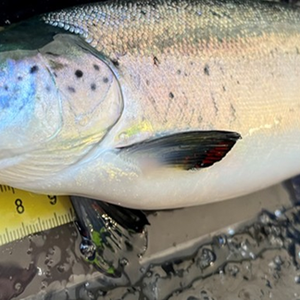On August 1st, the Yelcho Alliance, a public-private initiative, will begin its first experimental trial. The goal is to evaluate new sanitary strategies for preventing piscirickettsiosis (SRS) in Chilean salmon farming. The test, which marks a milestone in the search for effective SRS solutions, will be conducted by The Challenge Room at its study center in the Los Lagos region. In total, 7 vaccination proposals will be evaluated, using challenges at 650 and 1800 UTAS and both Piscirickettsia strains: EM90 and LF89.
The director of Yelcho, David Farcas, presented the new trials during the committee's recent session, held on June 17th at the headquarters of the National Fisheries and Aquaculture Service (SERNAPESCA) in Santiago.
The meeting gathered all members of the initiative, including the Agricultural and Livestock Service (SAG), SERNAPESCA, the Association of the Chilean Salmon Industry A.G. (SalmonChile) through the Salmon Technological Institute (INTESAL), and the Salmon Council. Also present were producer companies Australis Seafoods, Blumar, Camanchaca, Cermaq Chile, Cultivos Yadrán, Mowi Chile, Multi X, Salmones Austral, Marine Farm, and Ventisqueros. These pioneering companies collectively represent 73% of Atlantic salmon production in Chile.
Farcas emphasized the importance of the Yelcho Alliance as a pioneering model of public-private collaboration in sanitary matters within the aquaculture industry. He also thanked authorities for their continued commitment and support in finding solutions to the national aquaculture sector's sanitary challenges, which are key to the country's economy. "Thanks to this collective effort, we can drive the industry toward an increasingly sustainable production model, optimizing the use of antimicrobials and moving toward effective preventive solutions," he stated.
Next steps
Daniel Woywood, technical manager of Aquabench, the consulting firm managing the Yelcho Alliance's work, provided an update on the SRS situation in Chile. He explained that the disease remains highly challenging, with outbreaks in specific areas being detected earlier in the salmon's cycle.
He added that during his participation in the “SRS Initiative 2025”—a conference held for the first time in Ireland, last April—countries like Scotland, Ireland, and Australia (specifically Tasmania) reported the detection of clinical cases on their farms. These findings have also raised concern in Norway, where the main genogroups of the disease (A and B) have not yet been reported, and SRS cases are currently not mandatory to report.
"SRS has become an emerging disease globally, affecting not only our country but the entire worldwide salmon farming scenario," Woywood emphasized.
Given the situation, the Yelcho Alliance decided to strengthen its collaboration with pharmaceutical companies and research centers to find new technological providers capable of developing solutions for preventing and controlling SRS. This aims to reduce the use of antibiotics, aligning with the principles of the One Health approach promoted by the World Health Organization, which recognizes that human, animal, and environmental health are interconnected.
Furthermore, the group committed to moving forward with scheduled experimental trials and field tests, and organizing a closed scientific session on SRS exclusively for alliance members and invited guests.
Finally, attendees learned about a proposal presented by the Millennium Institute of Immunology and Immunotherapy (IMII) aimed at creating an R&D Consortium for SRS vaccines. IMII is a scientific group that brings together researchers from several Chilean universities (Pontificia Universidad Católica de Chile, Universidad de Chile, Universidad Andrés Bello, Universidad Austral de Chile, Universidad de La Frontera, and Universidad de Antofagasta) who conduct basic research in immunology to develop applications in immunotherapy, such as new immunological therapies, vaccines, and pharmacological solutions.







